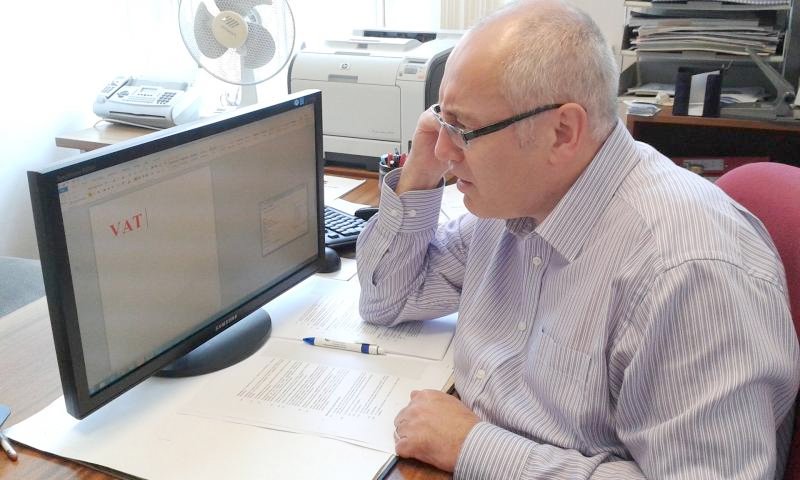The Accountancy Partnership is urging you to get up to speed with keeping your accounts digitally and making tax returns online.
Earlier this year, a report by the Institute of Chartered Accountants in England & Wales found 75% of businesses do not maintain their accounts electronically or use accounting software. It found that 41% of manufacturing and construction businesses still rely on pen and paper records.
The Accountancy Partnership, which operates Pandle cloud-based bookkeeping software, says HM Revenue & Customs (HMRC) is embarking on ‘Making Tax Digital’, which is now in a consultation phase that ends on 7 November. If you want to take part in the consultation visit: www.gov.uk/government/collections/making-tax-digital-consultations.
The Accountancy Partnership founder, Lee Murphy, says tax payers should become familiar with filing their accounts online and start using a software package – because HMRC is not providing one.
He says: "The Making Tax Digital scheme will see digital tax accounts for all taxpayers – individuals and businesses. For businesses, the most significant change is the requirement for digital record keeping. This will involve the use of software or apps (like Pandle) to record income and expenditure, which can submit information to HMRC once every three months."
HMRC plans to phase in the new regime over the next four years starting with the smallest businesses first.
Edward Troup, Executive Chair, HMRC: "Making Tax Digital represents very significant change. It will bring the tax system into the 21st century and help make HMRC one of the most digitally-advanced tax administrations in the world. Going digital will abolish the annual tax return as we know it by 2020, replacing it with a personalised digital service through which taxpayers will be able to send and receive information to HMRC at the click of a button."
Lee: "The self-employed and landlords with turnover less than the VAT threshold will move to the digital format for the year starting 6 April 2018. This applies if the business is the individual’s main source of income or if it is a secondary source and the turnover is more than £10,000 per year.
"The self-employed, partnerships and landlord businesses that are VAT registered will join from 6 April 2019. Lastly, all companies will join from 1 April 2020. For individuals, the changes have already started to happen.
"Every person can register for a digital tax account with HMRC now. Eventually, it will be possible to declare all other sources of income and gains using the digital account."
For a company that currently files quarterly VAT returns and an annual corporation tax return, Making Tax Digital will mean that from 1 April 2020 the business will need to maintain details of its business records on an app or software which can make quarterly submissions to HMRC.
"The company should be given access to a digital tax account by 2020 that will contain all of its corporation tax, VAT, and payroll records in one place," says Lee.
"The company will have the option to pay all of its taxes (such as corporation tax and VAT) in smaller, more regular payments. It will also be possible to offset a refund of one type of tax against another. For other organisations (charities, for example) HMRC would like to include them within Making Tax Digital but will be holding a consultation on this first."
Plugging the Accountantcy Partnership's Pandle software, Lee says: "Cloud accounting is the future and Pandle makes Making Tax Digital bookkeeping simple for smaller companies. It is fundamentally different to larger software packages: bosses, or their bookkeepers, do not need training to use it. Moreover, because Pandle is cloud-based it does not have to be uploaded to your computer using an old-fashioned disc and then suffer compatibility problems or require lots of backups. You simply access Pandle online. And most of its services are free.
"The key is that Pandle is designed to be a simple, inexpensive way for business owners to meet their statutory digital accountancy requirements with HMRC so your company is ready for Making Tax Digital."

